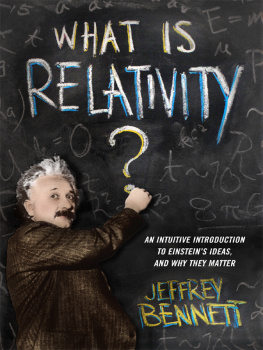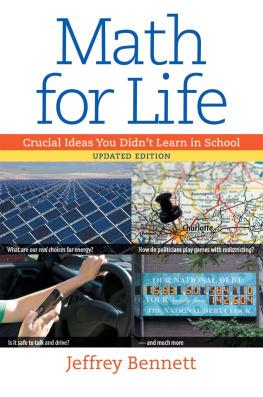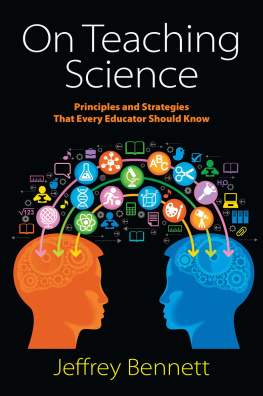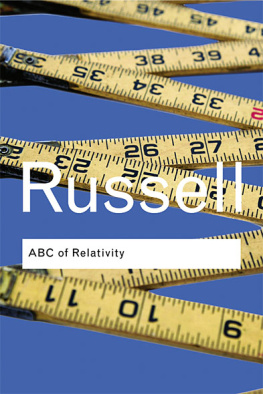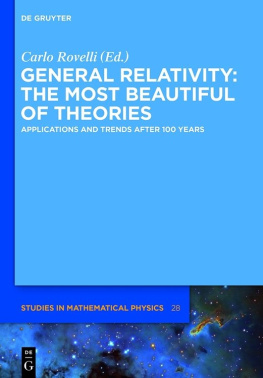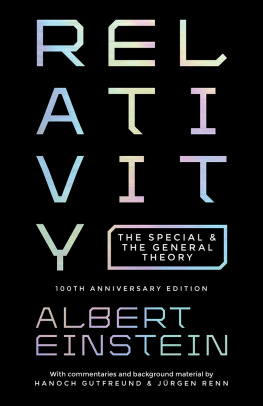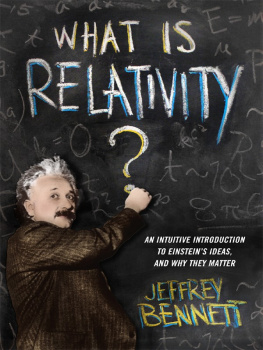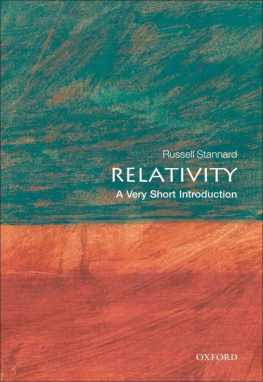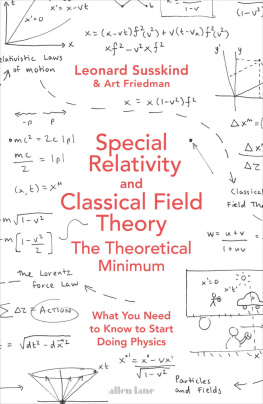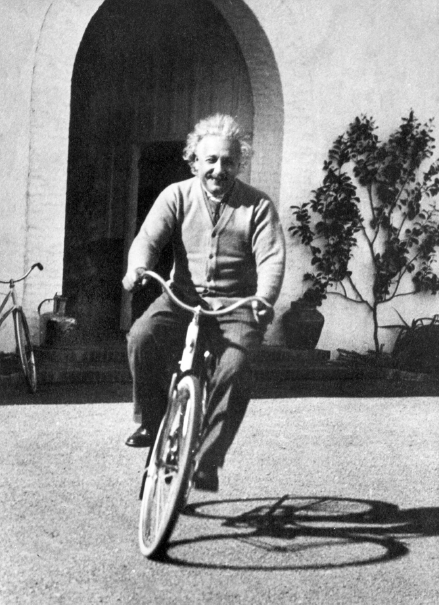Jeffrey Bennett - What Is Relativity?: An Intuitive Introduction to Einsteins Ideas, and Why They Matter
Here you can read online Jeffrey Bennett - What Is Relativity?: An Intuitive Introduction to Einsteins Ideas, and Why They Matter full text of the book (entire story) in english for free. Download pdf and epub, get meaning, cover and reviews about this ebook. year: 2014, publisher: Columbia University Press, genre: Religion. Description of the work, (preface) as well as reviews are available. Best literature library LitArk.com created for fans of good reading and offers a wide selection of genres:
Romance novel
Science fiction
Adventure
Detective
Science
History
Home and family
Prose
Art
Politics
Computer
Non-fiction
Religion
Business
Children
Humor
Choose a favorite category and find really read worthwhile books. Enjoy immersion in the world of imagination, feel the emotions of the characters or learn something new for yourself, make an fascinating discovery.
- Book:What Is Relativity?: An Intuitive Introduction to Einsteins Ideas, and Why They Matter
- Author:
- Publisher:Columbia University Press
- Genre:
- Year:2014
- Rating:5 / 5
- Favourites:Add to favourites
- Your mark:
What Is Relativity?: An Intuitive Introduction to Einsteins Ideas, and Why They Matter: summary, description and annotation
We offer to read an annotation, description, summary or preface (depends on what the author of the book "What Is Relativity?: An Intuitive Introduction to Einsteins Ideas, and Why They Matter" wrote himself). If you haven't found the necessary information about the book — write in the comments, we will try to find it.
It is commonly assumed that if the Sun suddenly turned into a black hole, it would suck Earth and the rest of the planets into oblivion. Yet, as prominent author and astrophysicist Jeffrey Bennett points out, black holes dont suck. With that simple idea in mind, Bennett begins an entertaining introduction to Einsteins theories of relativity, describing the amazing phenomena readers would actually experience if they took a trip to a black hole.
The theory of relativity also reveals the speed of light as the cosmic speed limit, the mind-bending ideas of time dilation and curvature of spacetime, and what may be the most famous equation in history: E = mc2. Indeed, the theory of relativity shapes much of our modern understanding of the universe. It is not just a theory -- every major prediction of relativity has been tested to exquisite precision, and its practical applications include the Global Positioning System (GPS). Amply illustrated and written in clear, accessible prose, Bennetts book proves anyone can grasp the basics of Einsteins ideas. His intuitive, nonmathematical approach gives a wide audience its first real taste of how relativity works and why it is so important to science and the way we view ourselves as human beings.
Jeffrey Bennett: author's other books
Who wrote What Is Relativity?: An Intuitive Introduction to Einsteins Ideas, and Why They Matter? Find out the surname, the name of the author of the book and a list of all author's works by series.

